Are Law Schools Above the Law?
Harvard Law cutting its number of affirmative action of slots for blacks is getting a lot of publicity, but most other top law schools ignored the Supreme Court's ruling.
Update: My apologies to New York University Law School for getting it confused in earlier versions of this table with New York Law School.
Here’s a table I made up from American Bar Association and US News & World Report data showing that Harvard, Vanderbilt, and Georgetown were the only elite law schools to act like they felt it advisable to merely compromise with the Supreme Court rather than simply ignore the 2023 ruling like Yale, Stanford, Chicago, and so forth did.
I wrote about this for my new Taki’s Magazine column:
Are Law Schools Above the Law?
Steve Sailer
December 18, 2024A fascinating test case of the rule of law in America is whether or not law schools are obeying the Supreme Court’s Students for Fair Admissions decision in the summer of 2023 finding affirmative action in undergraduate admissions to be a violation of the 14th Amendment’s promise of “equal protection of the laws.”
That ruling against Harvard College didn’t exactly necessarily apply to law school admissions, but come on…you law school deans are supposed to be able to figure out its implications.
The American Bar Association has now published the data on first law classes enrolled after the Supreme Court’s decision, so we can see who’s been naughty and who is nice.
I will focus on the 19 law schools with median LSAT scores of 170 (Vanderbilt, UCLA, Berkeley, Duke, and Boston U.) to 175 (Yale). These account for a little over 14 percent of all law students, and a higher percentage of those who will graduate, more of those who will pass the bar exam, and an especially huge percentage of those who will get hired by Big Law firms to work on corporate deals at starting salaries around $225,000. You often hear about the top 14 law schools that you must attend to be hired to work on major corporate contracts, but nobody seems able to agree on precisely who they are. So a top 19 list works well.
Read the whole thing there.
And here’s all 196 law schools in alphabetical order:
The LSAT is scored on 120 to 180, analogous to the SAT’s 200 to 800 scoring system (just subtract 100 and multiply by 10) with 150 as the goal for the mean and a standard deviation of around 10.
I estimated how many blacks scored 170 or higher by assuming a normal distribution of black scores. But that could be wrong. So far, I haven’t been able to find any official counts of high scorers by race. If you know of any, let me know, please.

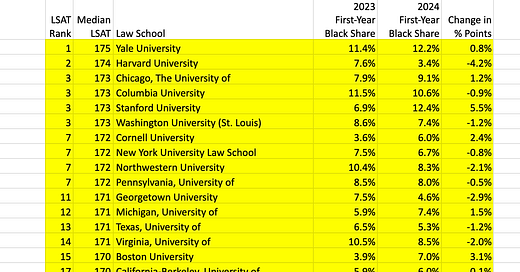



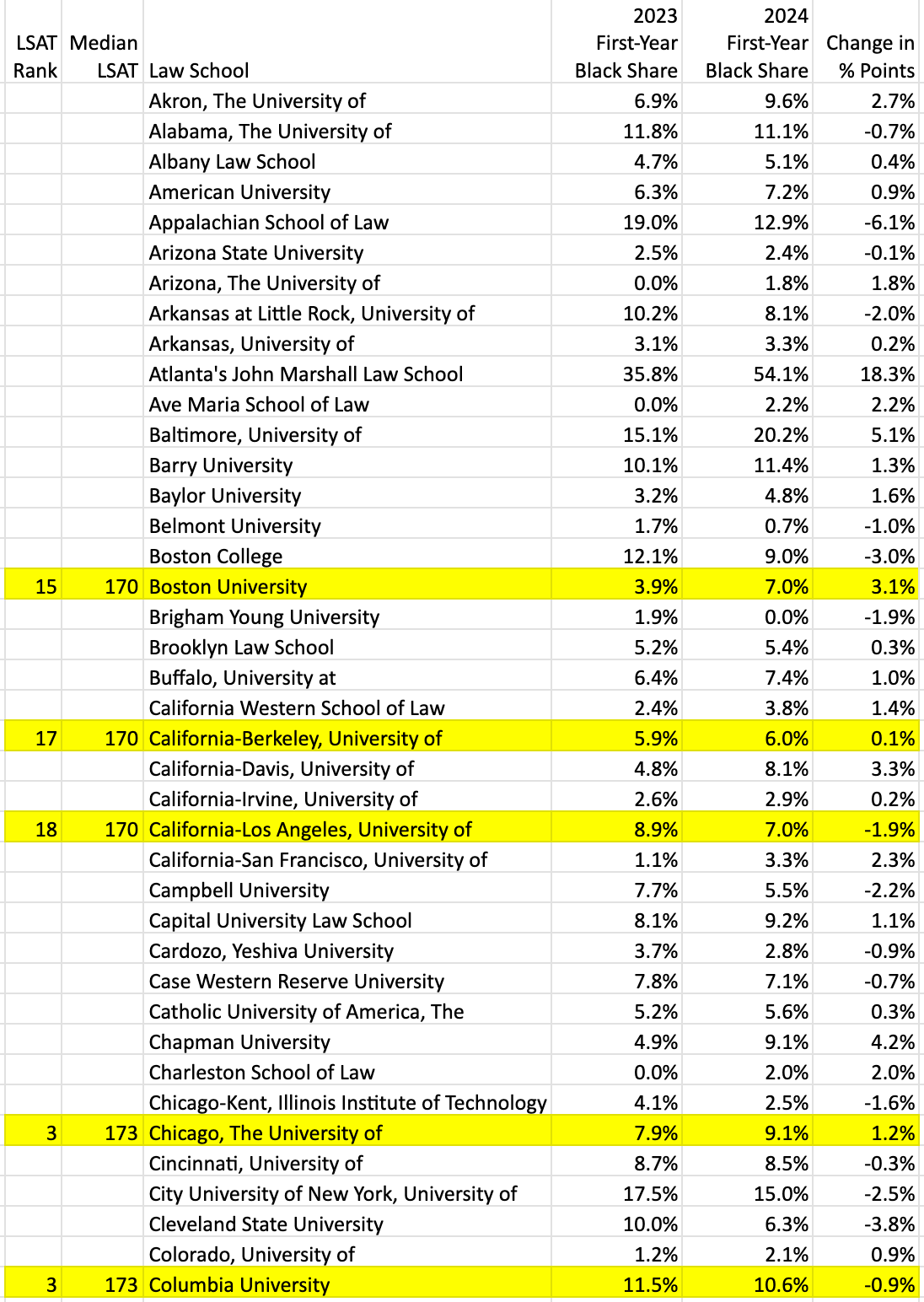
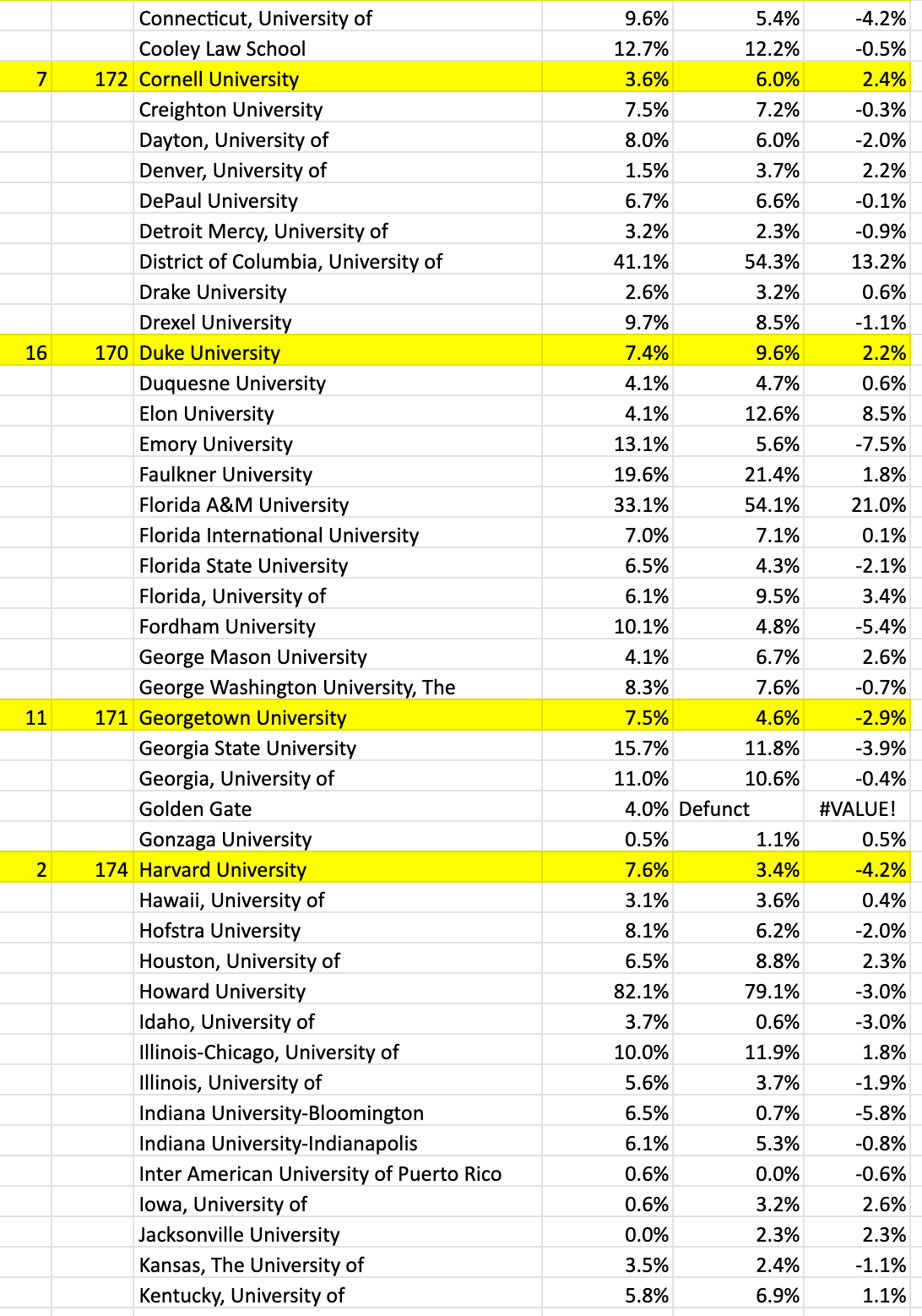
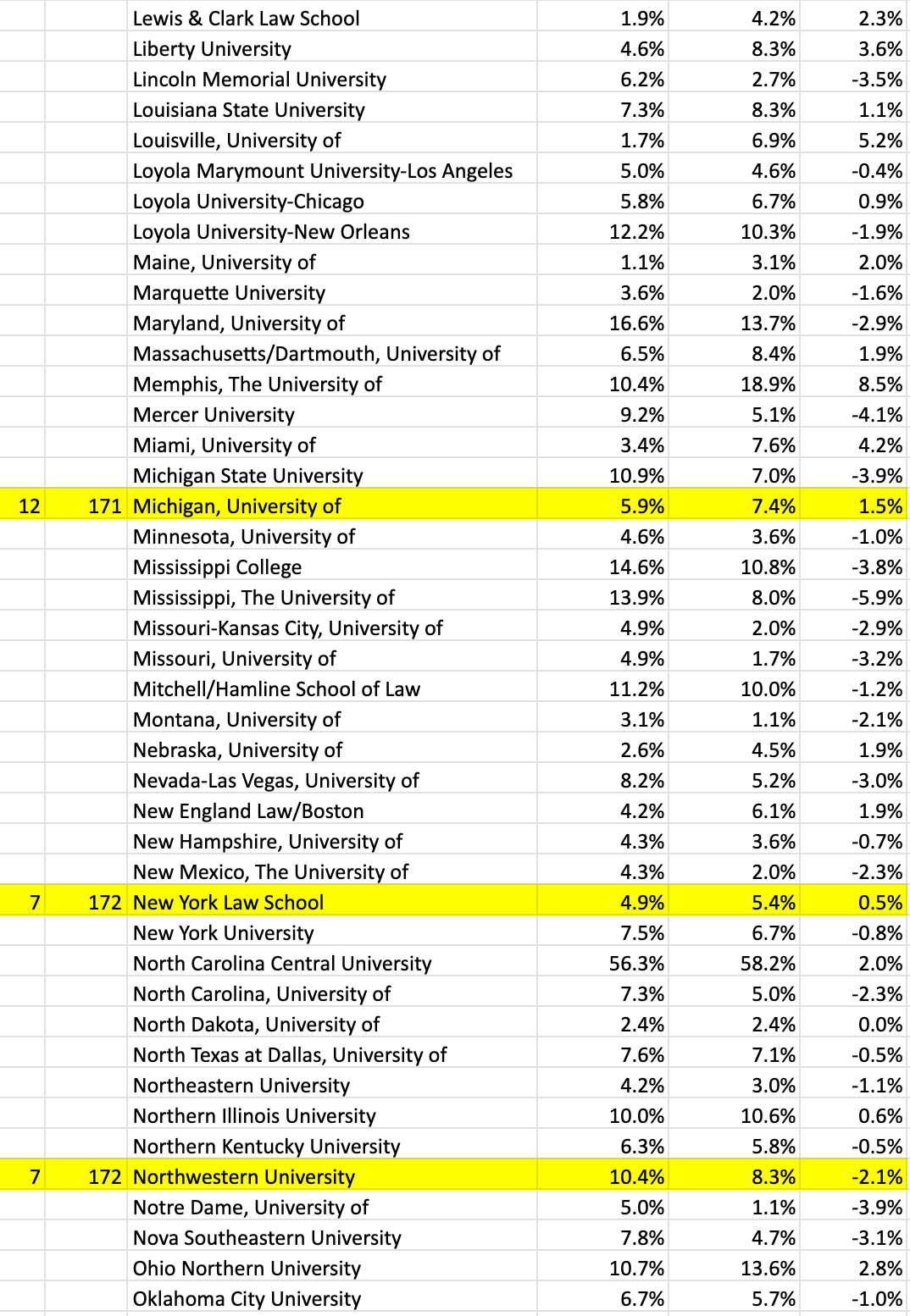
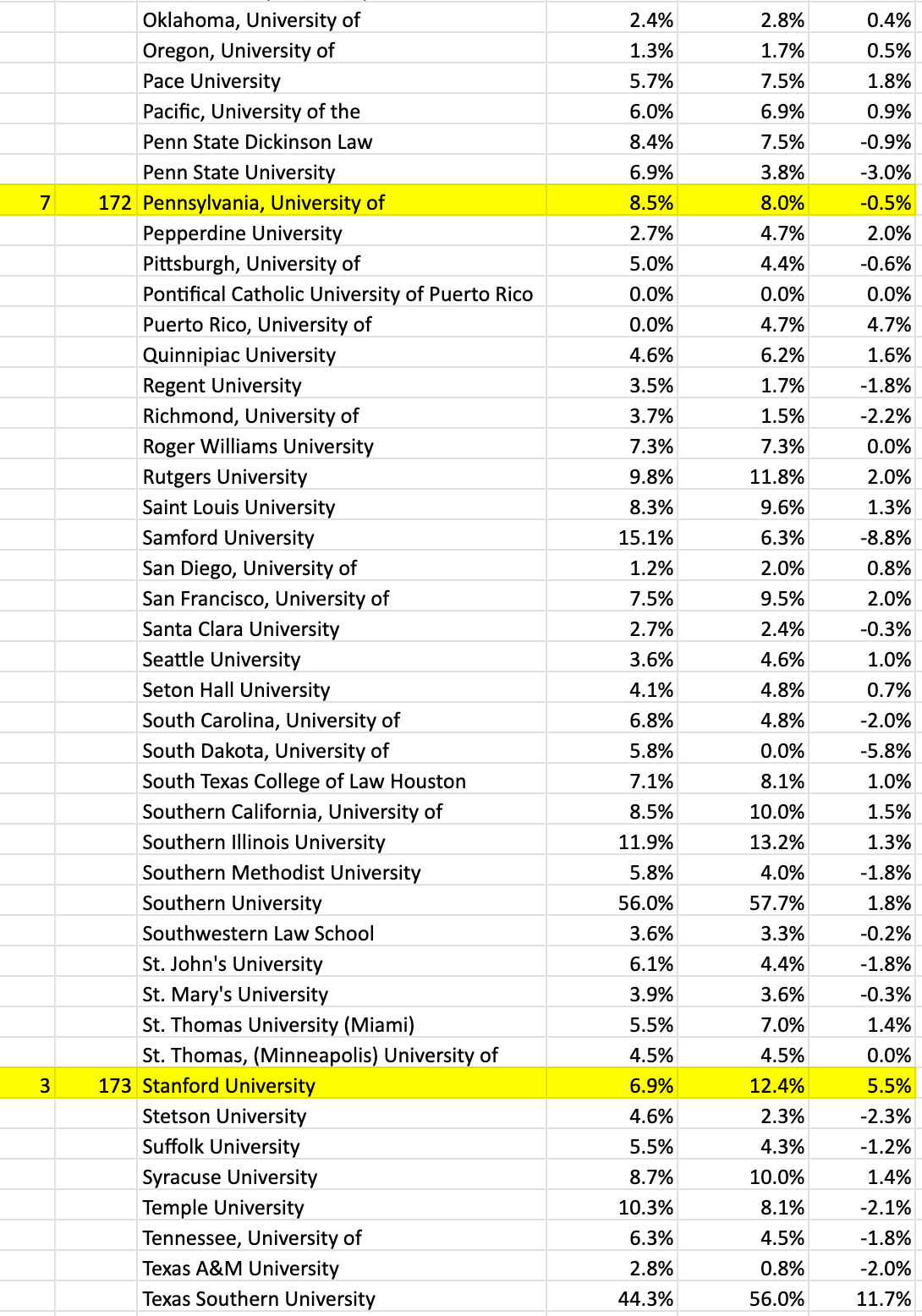
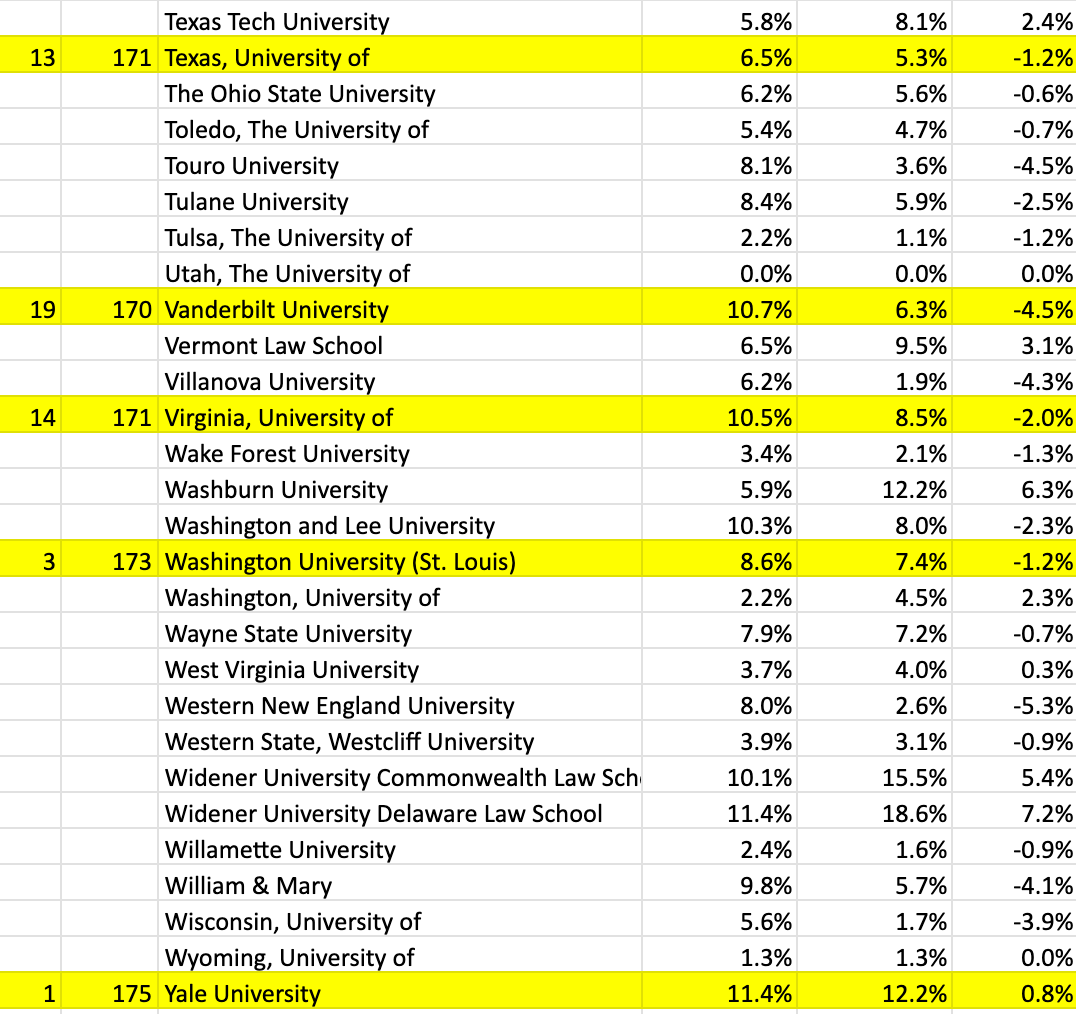
Having graduated from New York Law School, I think you meant to highlight NYU, and not New York Law School.
Just a general comment - documenting absolute 2023 to 2024 admission changes Table 1 in percent is a little bit "misleading". Absolute changes are redundant because everyone with IQ>90 will be able to calculate them on his/her own. Relative changes are more interesting, since not everyone does mental high-speed fractions and for lack of a calculator, lol. Actually, I was surprized my new smartphone didn't have one preinstalled! Times fly! Anyway, Harvard saw a 55% relative reduction in numbers - biggest among the peers. Obviously, the effect was drowned by other Ivy League members - Stanford had an almost 2-fold increase. Sounds like a case of whack a mole...